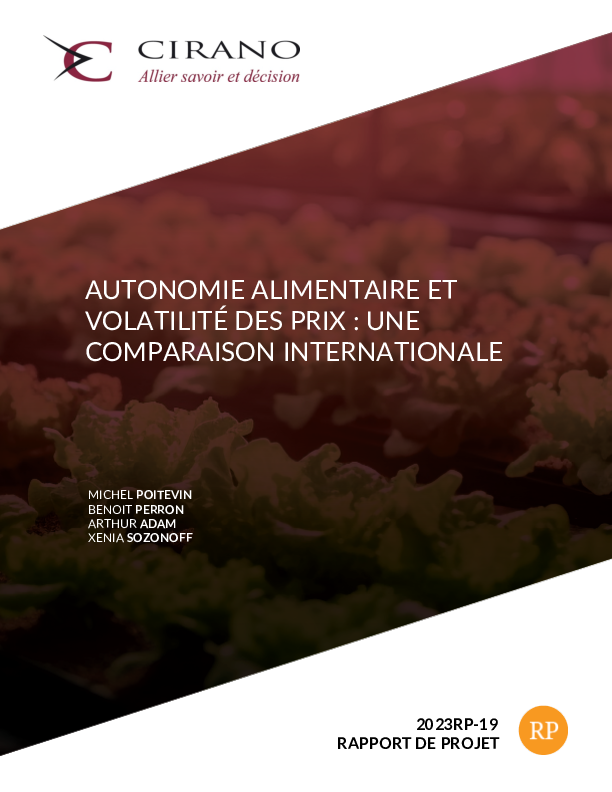Autonomie alimentaire et volatilité des prix : une comparaison internationale
The global pandemic forced both political leaders and the population to look inward and question the efficiency and solidity of the foundations of our food supply system. In this extraordinary context, one of the issues that quickly came to the fore was food autonomy. Can food autonomy play a role as a self-insurance mechanism against global shocks to food demand or supply?
The basic intuition is that these shocks affect international prices, and that it is possible to avoid or partially insulate oneself from these shocks by producing locally. Using a rigorous, evidence-based approach, this study provides a statistical/econometric analysis of food autonomy as a self-insurance mechanism, and a comparison of the role of food autonomy in three regions/countries: Quebec, Canada and France. The authors used two different econometric approaches: reduced-form regressions and an estimation method borrowed from market finance.
Regardless of the estimation strategy used, the results are inconclusive. While food autonomy sometimes seems to play a self-insurance role, particularly in Quebec, this role is far from universal or widespread on an international scale. Also, although the results generally show that the degree of food autonomy is associated with a lower correlation between local and global inflation, they are not significant.
The results of the estimations therefore do not allow us to conclude that food autonomy has a strong potential as a self-insurance mechanism. Probably a strategy of diversifying supply chains (including local production) would be desirable, but it's important to retain foreign sources of supply.




